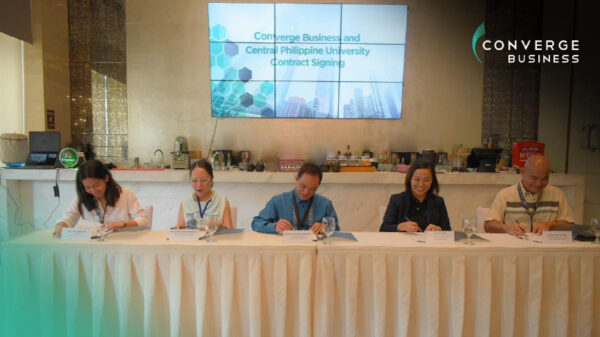5G is slated to be a game-changer with the technology uptake forecast to be even faster than expected, according to the latest June 2019 edition of the Ericsson Mobility Report.
While previous generations of cellular mobile technology were centered around consumer and personal communications, 5G is a platform for innovation that will empower a global technology shift, establishing inter-connectivity between people, enterprises and systems worldwide.
With ultra-fast connectivity speeds and low latency rates, 5G will transform industries and enable the future of smart cities, bringing about new opportunities, efficiencies and business models. 5G will provide countries like the Philippines with a competitive edge, increasing their attractiveness for foreign investors on the search for locations with digitalized operations. The most recent Ericsson ConsumerLab study 5G Consumer Potential also indicates that there is growing consumer interest in 5G, providing operators with a first mover advantage.
For mobile operators, the implementation of 5G technology will entail a shift in the current way of designing network architecture and deployment of network operations. This change will allow operators to simplify operations, better manage the growing traffic in the networks and help secure new revenue streams. Globally, operators are expected to add 5G and IoT-enabled revenues of 619 billion to their forecast service revenues of USD 1.7 trillion in 2026.
“At Ericsson, we are first to deploy 5G live networks in four continents, providing us with the relevant expertise and experience to accompany operators on the journey to 5G. We have been actively investing in R&D to establish a flexible portfolio with 5G-ready radios, spectrum sharing solutions, virtualized network functions as well as cloud native applications to allow for a seamless transition. Today, our 18 live networks with pioneering customers bears testament to the confidence operators have in our products and services,” says Nunzio Mirtillo, Head of Ericsson, South East Asia, Oceania and India at Ericsson.
As more 5G networks go live, the acceleration of 5G adoption is also fueled by chipset and device vendors launching smartphones for all main spectrum bands during the course of this year. Over 10 million 5G subscriptions are projected worldwide by the end of 2019. While 5G coverage is expected to reach 45 percent of the world’s population by 2024, a figure which could surge to 65 percent, as spectrum sharing technology enables 5G deployments on LTE frequency bands. Additionally, 12 percent of subscriptions in the region are predicted to be for 5G in the region of South East Asia, Oceania and India by 2024.
With 5G, consumers expect to not only stream video in higher resolutions but also use immersive video formats such as Augmented reality (AR) and Virtual reality (VR). This is anticipated to result in an additional three hours of video content being watched weekly on mobile devices by users in the 5G future when they are out and about, including one hour wearing AR glasses or VR headsets. By 2024, video forecast will make up almost 75 percent of mobile traffic, while one in five smartphone users’ data usage could reach more than 200GB per month on a 5G device by 2025.
Martin Wiktorin, Head of Ericsson Singapore, Brunei and Philippines says, “With ready and available spectrum, the Philippines has great potential for a game-changing 5G opportunity. At Ericsson, we have been a long-term partner to major operators in the country, where we have established a strong local footprint over the past 31 years. Through our extensive collaboration with Smart, our technology is involved at all levels of the society, from connecting the remote province of the Batanes to the world with LTE to preserving mangrove forests with IoT solutions. We have also recently signed a MOU with Smart to launch Clark City as the country’s first Smart 5G city as well as an alliance agreement to accelerate 5G innovations in the Philippines.”
As a global ICT leader, Ericsson is constantly striving to build thriving 5G ecosystems by collaborating with leading telecom operators, over 40 universities and technology institutes as well as 30 industry partners worldwide in order to understand and manage 5G industrial and consumer use cases. This includes smart wireless manufacturing, driverless cars, hologram calls, as well as connected stadiums and e-sports. With an enriched experience in global 5G use cases, Ericsson is well-positioned to open up new opportunities for both businesses and communities in the Philippines.











































































































